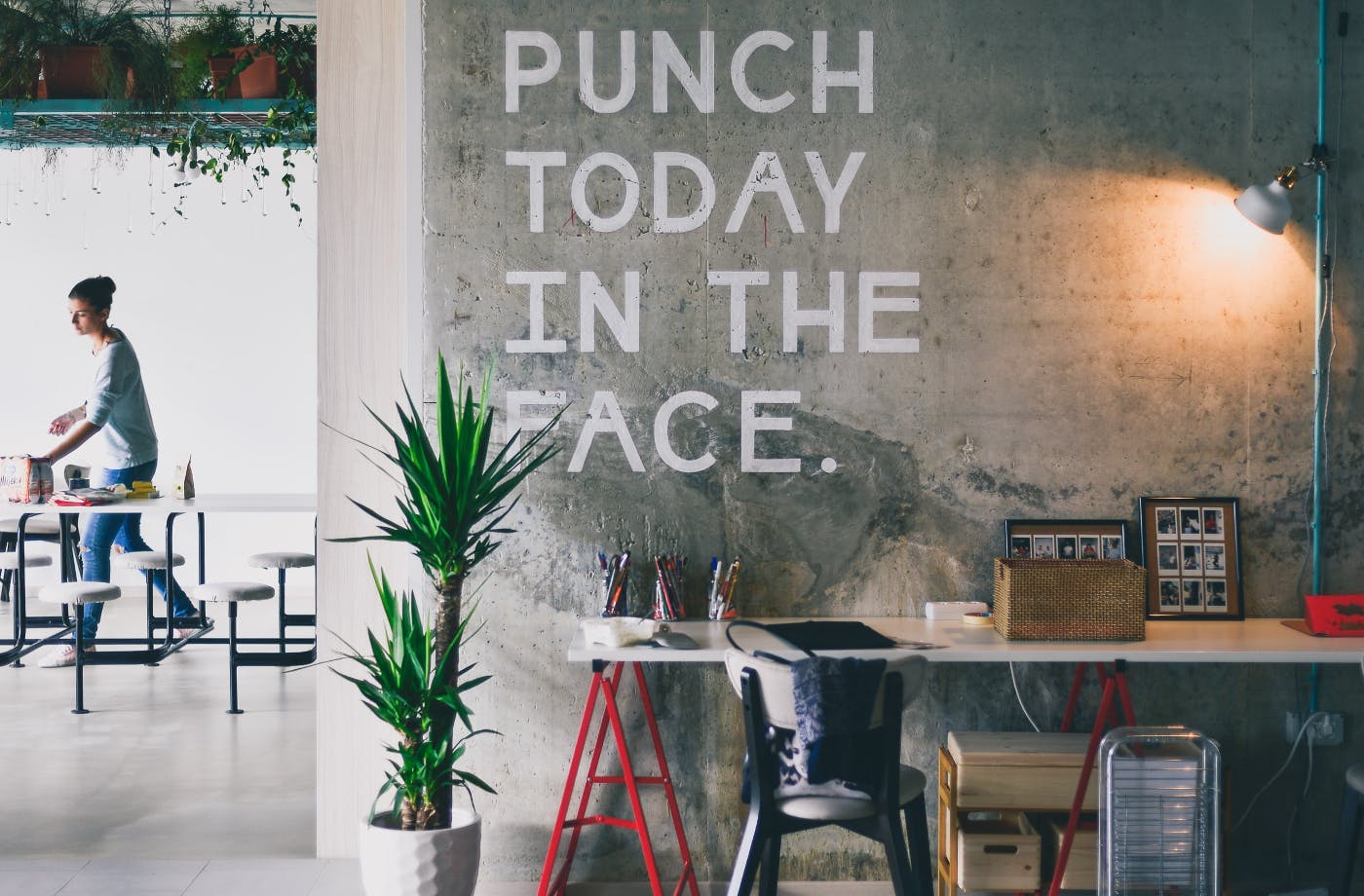
But we’ve hated Mondays since Garfield was in office and the cat was on the funny pages; why are we suddenly making more out of Mondays than we used to? What changed, what’s going on, and most importantly, what is bare minimum Monday?
No one likes Mondays. Don’t believe it; just ask everyone’s favorite lasagna-eating cat, Garfield. He hates Mondays. He’s grumpy without his coffee. He’d rather stay in bed. We can all sympathize. No one wants those two precious weekend days to be over, and no one wants to face the work grind again. No one likes Mondays.
Of course, no one thinks twice about a cat eating lasagna, with its garlic, onions, and wads of cheese that will make a cat seriously ill. Not to mention caffeine is toxic for cats, but that little guy hates Mondays, so we’re with him.
Perhaps the little feline hates Mondays because his namesake, President James Garfield, died on a Monday. That’ll spoil your week, for sure.
But we’ve hated Mondays since Garfield was in office and the cat was on the funny pages; why are we suddenly making more out of Mondays than we used to? What changed, what’s going on, and most importantly, what is bare minimum Monday?
Let’s find out.
What is Bare Minimum Monday
The root of this new trend is familiar; we used to call them Monday blues, and they followed closely on the heels of the Sunday night scaries. This phenomenon can best be described as the inertia people feel starting work Monday morning.
In 2021, YouGov polled 4000 working people and discovered that 58% of them responded that Monday was their least favorite day of the week. Wow, they really blew the lid off that, didn’t they?
Do we need a survey to show us that? Just take a look at the faces on any bus or train heading into a city on a Monday morning, and you’ll know immediately that no one wants to be there.
However, bare minimum Mondays go beyond just loathing the day. Bare minimum Mondays can have a negative effect on productivity. The idea is that an employee shows up to work on Monday and does the bare minimum required to be called an employee. Usually, they arrive late after an extensive morning self-care ritual.
Where did this come from

Bare minimum Mondays were made popular by a TikTok influencer named Marisa Jo. The influencer describes this as a way to suppress the work pressure and ensure that she holds herself accountable to complete the least amount of work possible to get through the day.
Jo has videos and hashtags, and she describes the trend as a rejection of the hustle culture and putting self-care first. To do bare minimum Monday correctly, you’re encouraged to focus on,
- Allowing yourself to focus on your chores
- Focus first on a creative project you want to do instead of what would naturally occur to be the priority.
- If a work project isn't urgent, make it wait until the next day
- Walking while working (she owns a desk treadmill)
- Allowing yourself to apply random activities to your morning, whether that's hanging art on the wall or watching a TV show
The question is, are bare minimum Mondays realistic? With her plan becoming so well known, it might be harder to get a bare minimum Monday past your boss now.
But let’s examine this a bit.
A Rejection of Hustle Culture
The primary purpose behind these new trends, like quiet quitting and now bare minimum Mondays, is the rejection of what’s known as Hustle Culture.
Hustle culture is a workplace trend, glamorized by entrepreneurs, that says you have to hustle harder, work harder, work more, put the job above all else, and then you’ll succeed to the point where you can just stop working because you’ll have scads of money.
Hustle culture eschews free time in the present for more free time in the future; the idea being you don’t need free time when you’re building a business or working your way up the corporate ladder.
Hustle culture stands in diametric opposition to the new workplace, tends like quiet quitting and now, bare minimum Mondays. These trends focus on not putting the job first and focusing more on life balance and self-care.
Many believe these new trends are the way to go, saying that all these years of hustle culture negatively impact people. They also think workplaces can suddenly turn to a hustle culture without employees noticing. Some signs to look out for are,
- Employees are praised or rewarded for working long hours
- People send emails and Slack messages at all hours, including on weekends
- Performative acts of “hustle” are common, including bragging about not getting enough sleep, skipping meals to work, and other unhealthy habits
- Employees take pride in not using PTO days
- It seems like work is the most important thing to everyone — and having a personal life isn’t normal.
- When someone asks for help, they’re told to “find a creative solution” instead of receiving additional resources and support.
While some say this is the way to get ahead in the world, others point out that it can easily lead to a toxic work environment, burnout, and even depression.
Both a toxic work environment and burnout and depression should be avoided, but is a bare minimum Monday the way to do it?
Bare Minimum Monday and Productivity

Is bare minimum Monday productive? The answer depends on what side of the table you sit on and what you define as productive.
For an employee, yes, it is productive; this is because a bar minimum Monday allows you to ease into the week. Instead of following up the Sunday Night scaries a go, go go, get it done attitude, employees feel that easing into the work world on Monday allows them to spend their energies more wisely, allowing them to be very productive during the week. More so than they are when they jump into Mondays cold after a weekend. Like trying to drive a car on an icy morning, you must warm that baby up first.
So, a bare minimum Monday sees employees taking their time, not focusing some much on the in-box, and focusing on themselves.
For employers, this is a different question. The immediate reaction is that we are paying them to work and paying them for five days, but essentially, they are scraping Monday, which is a very hustle culture reaction.
Wiser employers see that workplace morale goes up and productivity during the week isn’t diminished; it’s usually better when employees ease into their work week.
It may be more difficult for older generations to understand that doing a little less can be productive in the long run. But, that generation also forgets quickly that they used to come in on Mondays and do all they could to avoid jumping into work. Before email and slack, there was the water cooler and the coffee cart. Mondays have never been challenging for everyone. Expert for Monday Monderson; he loves them.
It’s an Individual Choice
It would be unwise for an employer to announce everyone gets to do bare minimum Mondays. Some people like jumping into work. Some people put their job first and are happy doing so.
The problem with a trend like this is people see them on social media and then take them as law. They demand their employers give them a bare minimum Monday, and if they don’t get that, they will quiet quit and then become actively disengaged.
Before you put on your Captain Bligh uniform and cut the grog ration of your bare minimum Monday employees, you can avoid a full mutiny.
- Listen to the workplace, are people overworked or facing impossible deadlines?
- Are you cultivating a hustle culture workplace?
- Do you require your current employees to pick up the slack for those who’ve quit?
- Are people starting to quiet quit and gathering people to them?
- Are you making sure you express to your employees that their health and well-being are essential to the company?
If you’re facing more than just a bare minimum Monday, perhaps you need to ask the above questions, evaluate your responses, and change your ways.
Remember that your employees are individuals and respond differently to work, office politics, and current trends like bare minimum Mondays. Seeing them as individuals, as people, not just workers, may help them transition from weekends or vacations more easily. It may also cut down on quiet quitting and make the bare minimum Monday a passing phase on social media.
Remember, it’s just a social media trend; it’s not the law of the land.

